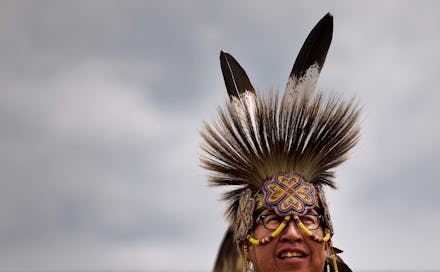Canadian government liable for native children taken from families in "Sixties Scoop"

A Canadian judge ruled Tuesday in favor of thousands of indigenous children — now full-grown adults — who filed a class-action lawsuit against the government for forcibly removing them from their families between 1965 and 1984 in what became known as the "Sixties Scoop."
According to the Guardian, those children were adopted by nonindigenous families as part of what plaintiffs alleged was a systematic effort to erase their cultural identity.
"The 'scooped' children lost contact with their families," Ontario Superior Court Justice Edward Belobaba wrote in his decision. "They lost their aboriginal language, culture and identity."
Belobaba wrote that neither the children nor their new families were informed of the removed children's heritage, therefore denying the children of "various educational and other benefits" to which they were entitled, like those listed on Canada's Indigenous and Northern Affairs page.
What's more, Belobaba described the First Nations children as having virtually disappeared during the operation, a traumatic event that ultimately resulted in long-term emotional and physical harm.
"The loss of aboriginal identity resulted in psychiatric disorders, substance abuse, unemployment, violence and numerous suicides," Belobaba wrote.
These same epidemics plague many native communities in the United States — and for strikingly similar reasons.
The U.S. government established and operated American Indian boarding schools in the late 1800s, forcibly removing native children from their families to receive an education that would assimilate them to white culture.
According to the National Museum of the American Indian, Native American children were forced to cut their hair, speak English, change their given names and abandon their own religion for Christianity.
In 2009, former President Barack Obama signed a bill that, in part, included an apology to Native Americans for violence the government perpetrated against them and their ancestors.
The largely symbolic statement apologized "on behalf of the people of the United States to all Native Peoples for the many instances of violence, maltreatment and neglect inflicted on Native Peoples by citizens of the United States" — but with the caveat that Congress wouldn't support any lawsuit claims against the U.S. government.
Advocates said Belobaba's ruling was remarkable because it acknowledged a legacy of colonization in a way few governments have.
"Our pain was acknowledged," lead plaintiff Marcia Brown Martel told the Guardian. "I hope no one sees this as a loss for our government. It is a gain for all of us."